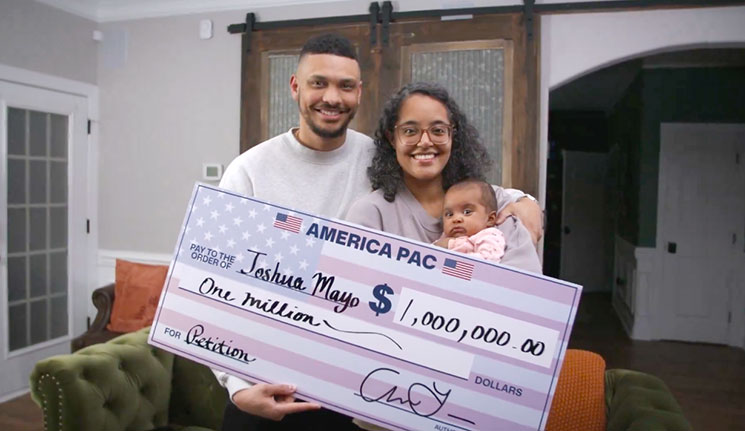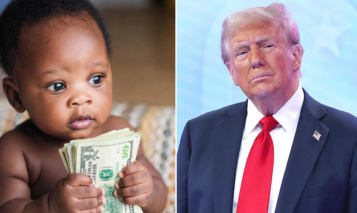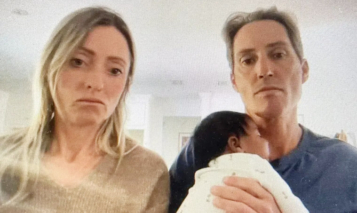
A North Carolina man is among many Americans who won $1 million after signing Elon Musk’s petition in support of the U.S. Constitution.
Joshua Mayo, a married father of three, signed the petition online and referred his friends and family to sign. He was recently notified that he “earned” $1 million.
“I did everything Elon Musk asked. I signed the petition, I referred my friends and family, and because of that, I earned $1 million,” he said in a video on X (formerly Twitter).
Joshua was emotional as he explained he is able to do well for himself and his family, “But then a million dollars shows up at my door. I just never imagined in a million years that this would happen. It’s gonna help my family so much to fulfill our dreams of being able to pass something down to my kids,” Joshua said while holding a giant mockup of a $1 million check.
He continued: “I am a father of three beautiful children… I want them to grow up in an America where they don’t lose their basic rights, their basic freedoms.”
Joshua said he is grateful that Musk is willing to risk everything to protect basic rights in America.
Congratulations, Joshua of North Carolina! https://t.co/xz01PIwcyj
— Elon Musk (@elonmusk) October 31, 2024
Musk is giving away $1 million daily to a lucky American who signed his America PAC petition.
But not everyone is grateful that Musk is supporting the Constitution.
Philadelphia District Attorney Larry Krasner filed a lawsuit against Elon Musk’s America PAC on Monday, Oct. 28.
Krasner called Musk’s daily giveaway an “illegal lottery.” He accused Musk of interfering in the election by giving away $1 million a day.
Krasner asked a judge to immediately halt the giveaway on Monday, but the judge scheduled a hearing for Thursday, Oct. 31.
The judge ordered Musk to show up in court on Thursday to prove his giveaway is not an illegal lottery. But Musk was a no-show.
Krasner’s attorney told reporters after the hearing that the case will be moved to federal court.
“We will proceed to federal court, and we will address the issues there and seek to have the matter remanded back to the state court,” said John Summers. “After all, this is a case that involves state law issues, and I’ll leave it at that.”





